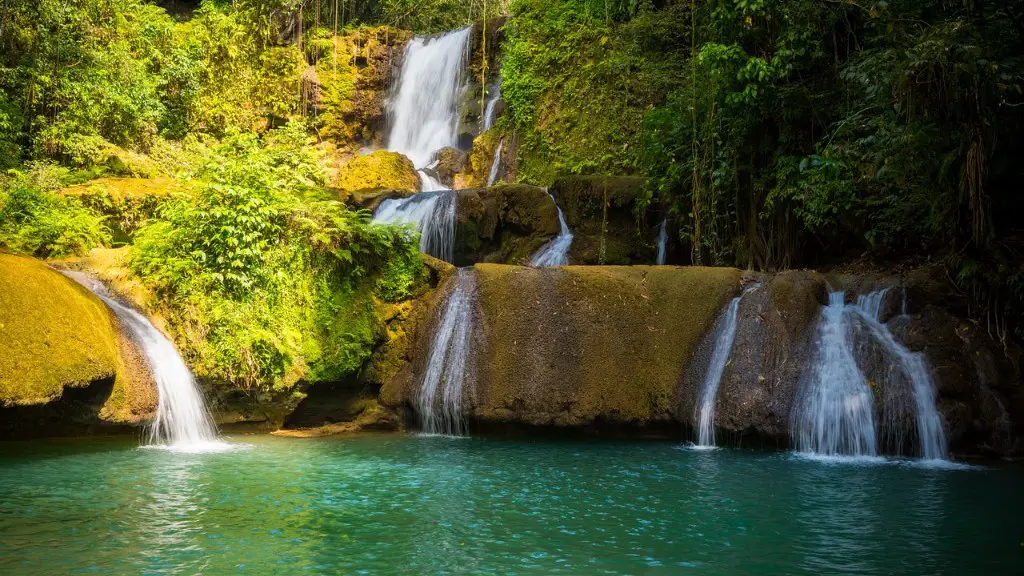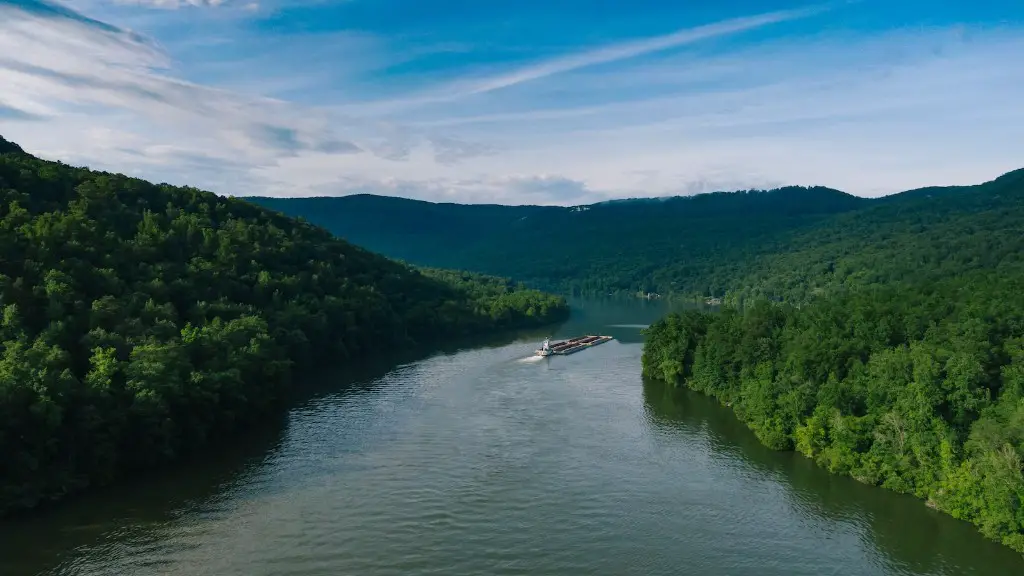What is Causing the Mississippi River to Disappear?
The Mississippi River, one of the longest rivers in the world and the main artery of the United States, is rapidly disappearing. Its decline has caused concern among scientists and conservationists who are concerned that its loss could have a devastating impact on the economy and environment in the region. But what is causing the decline of the Mississippi?
Environmental Factors
The Mississippi River has long been impacted by environmental factors, such as climate change, which has led to extreme droughts and storms. The resulting water shortages have had a negative impact on the river. Furthermore, agricultural practices have also had an effect on the river’s health. The use of fertilizers and pesticides has caused environmental damage, while animal waste has also led to water pollution.
Misguided Human Interventions
Unfortunately, human intervention has only worsened the situation. In an effort to combat the river’s decline, the Army Corps of Engineers has built flood control and navigation projects on areas of the Mississippi, which has caused further erosion of the riverbed. The construction of large dams has inhibited the natural movement of the waters, and this has led to a decrease in the river’s flow.
Habitat Loss
The decline in the Mississippi has also been attributed to habitat loss. A decrease in the amount of wetlands surrounding the river has reduced the levels of natural vegetation, which had been providing support to the river’s ecosystem. In addition, overfishing and pollution have made it difficult for the river’s species to survive, further contributing to its decline.
Potential Economic Effects
The decline of the Mississippi River has led to predictions of serious economic repercussions. The river is an essential artery for the transportation of both goods and people, and its disappearance could have an effect on the economy of the entire region. In addition, a reduction in the river’s water levels could also lead to a decrease in the number and size of natural resources, such as fish and mussels, in the area, which could lead to further economic hardship.
Human Activities to Preserve the River
Humans are fighting back against the decline of the Mississippi. There are numerous initiatives aimed at protecting the river and its ecology, such as the proposal of “Adaptive Management” plans, which would reduce the gradient of the channel, restore terrain, prevent erosion and create a healthy flow. Other measures include changes to the agricultural practices in the region to reduce river pollution, and the formation of several conservation groups to monitor the river and push for its protection.
Public Involvement in the Preservation of the Mississippi River
It is important for individuals and communities to contribute to the preservation of the Mississippi River. This could involve lobbying for stricter water-quality standards and advocating for more sustainable farming practices. Individuals can also choose to reduce their personal water consumption to help conserve the river and its resources.
The Potential for Reversing the Damage
There is still hope that the destruction of the Mississippi River can be reversed, but it will take concerted efforts from governments, businesses and individuals alike. While the decline of the Mississippi is alarming, if awareness of the situation is raised and action is taken, the river could still be saved.
Ways to Improve the River’s Condition
If the destruction of the Mississippi River is to be reversed, various steps need to be taken. Firstly, water flow needs to be improved by constructing high-quality water-management systems. Secondly, erosion needs to be prevented, which can be achieved through restoration projects and preservation of the region’s wetlands. Thirdly, agricultural practices need to be revised to reduce pollution, and finally, conservation efforts need to be increased to reduce habitat destruction.
Advantages of Protecting the Mississippi River
The preservation of the Mississippi River would bring many benefits to the environment and economy of the region. It would provide freshwater for human consumption, food for local species and habitats for multiple kinds of wildlife. It would also enable the transportation of goods throughout the region, and create employment for the people living near its shores.
Economic Benefits of Preserving the Mississippi River
The Mississippi River also has the potential to bring economic benefits to the region if it is preserved. It could become a tourism destination, providing economic stimulation to local businesses. It could also become a source of renewable energy through hydropower generation, as well as a source of fresh water for a number of industries.
Role of Citizens and Governments in the Preservation of the Mississippi
The preservation of the Mississippi River also requires action from both citizens and governments. Citizens need to become more aware of environmental practices and their impact, as well as advocating for more sustainable policies. Governments need to step up and implement regulations to protect the health of the river and its ecology. They also need to provide funding for conservation efforts, and for educational campaigns to raise awareness of the river’s importance.



